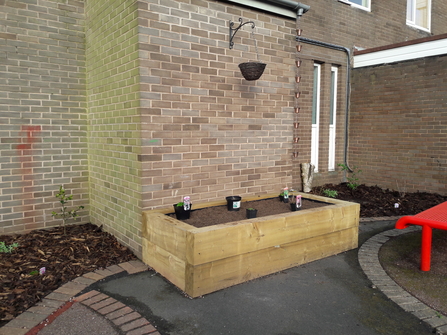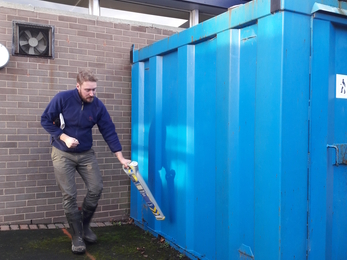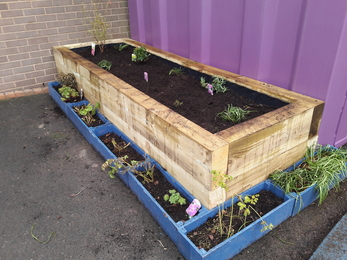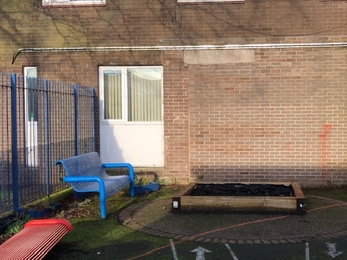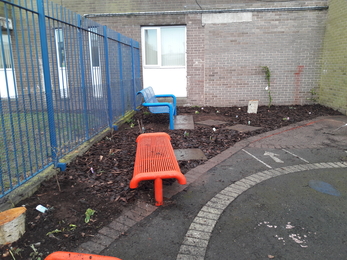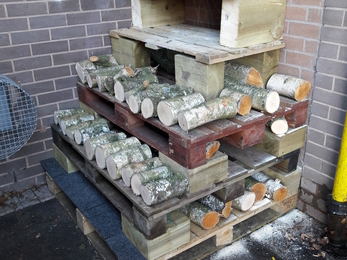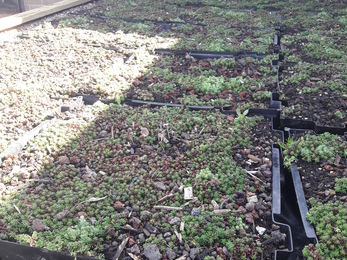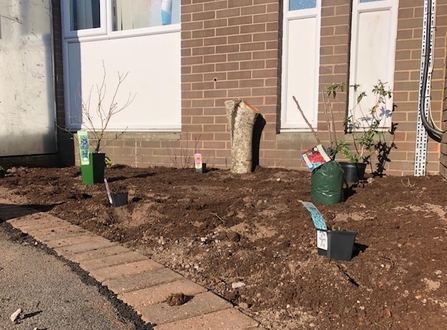Looking back into March
March has been a productive and successful month for the Rivers Team with two of our projects (Depave UK and River Friendly Shropshire) coming to a close. Throughout these two projects we have and will still continue to make a difference to our environment, educate and inform those around us and inspire people to do their bit for their community or river.
This issue we will focus on Depave UK which has provided Hub on the Hill community centre, in Telford with a brand new multi-purpose community garden. It has been specially designed to conserve water from the buildings roof, provide a home for wildlife and be a place where people can relax and connect with nature. The garden demonstrates a variety of ideas which will hopefully give people a refreshed look on what they can do in their garden, whether big or small.


